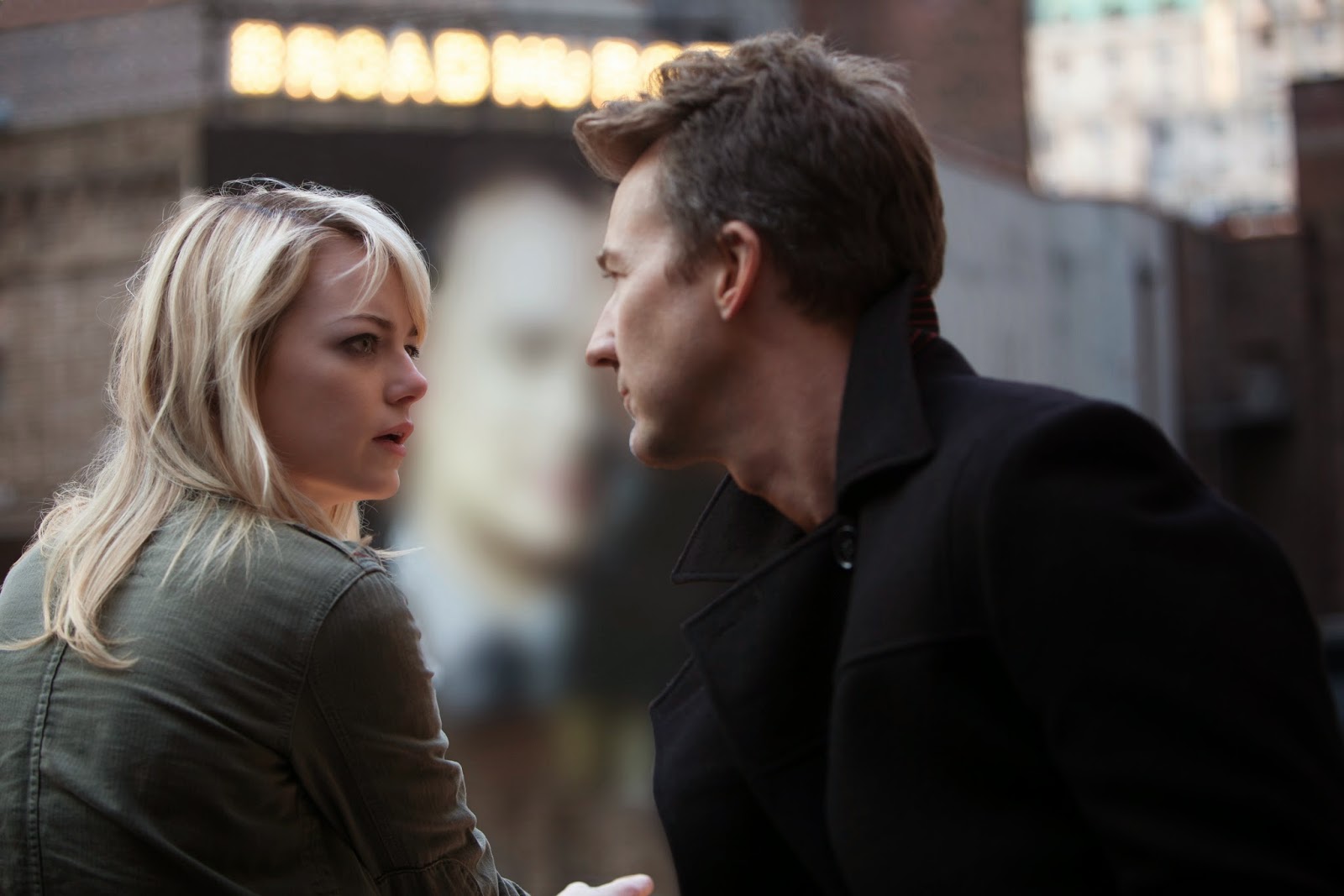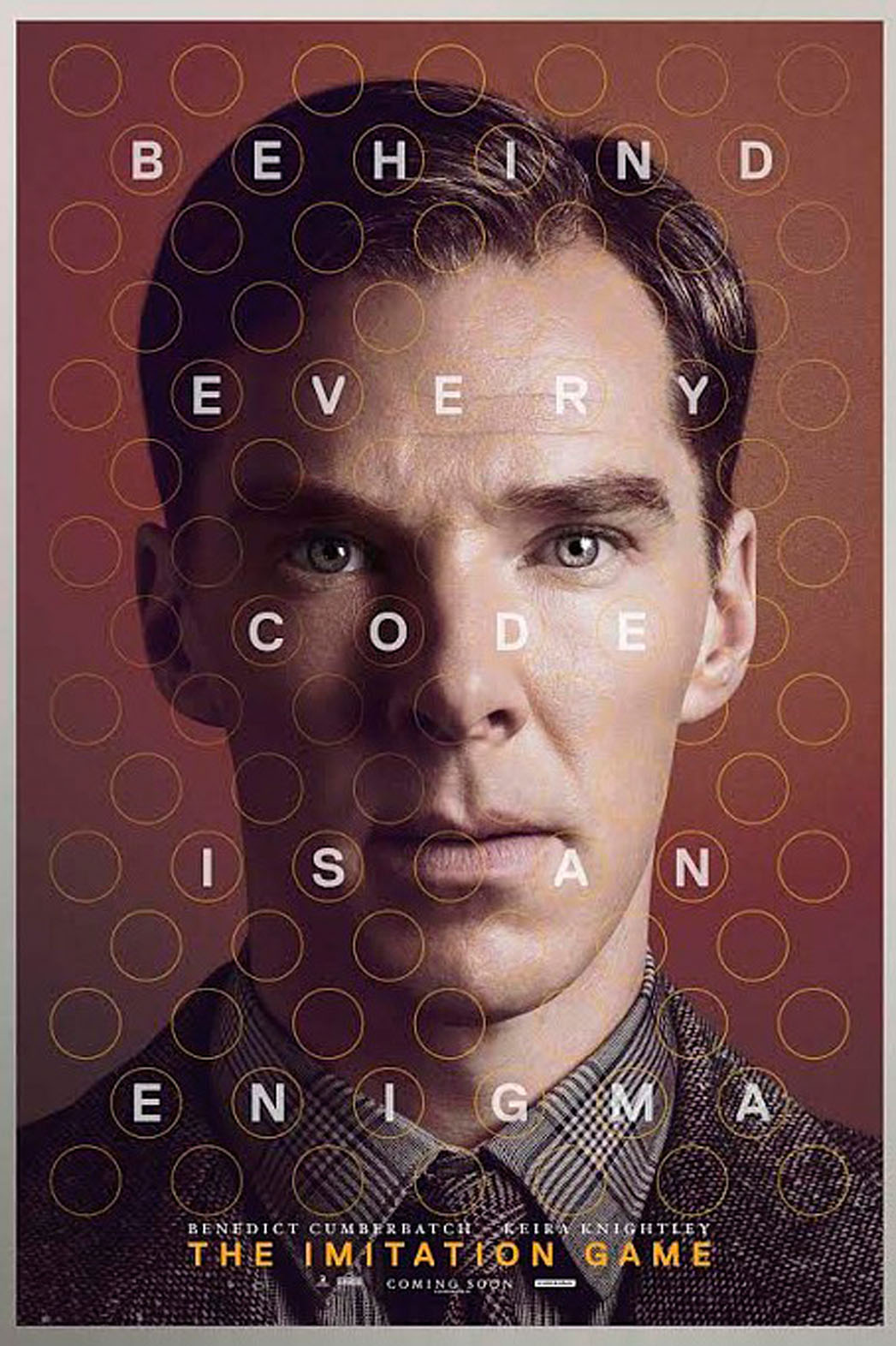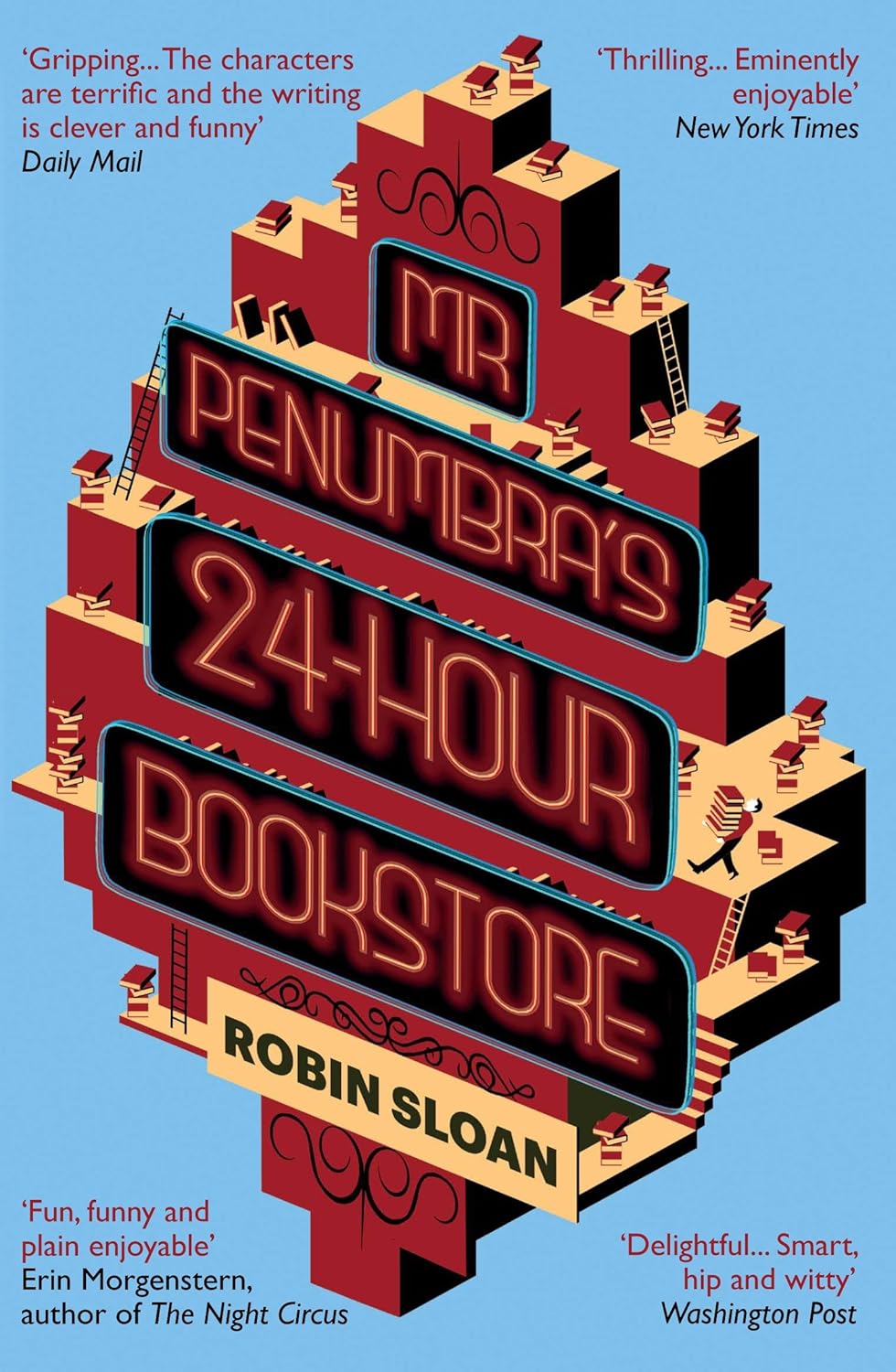
"Birdman (or the Unexpected Virtue of Ignorance)" (15)
Directed by: Alejandro G. Iñárritu.
Starring: Michael Keaton, Zach Galifianakis, Edward Norton, Andrea Riseborough, Emma Stone, and Naomi Watts.
Rated: '15' for containing strong language and sex references.
Running time: 119 minutes.
Released in UK cinemas from the 1st of January, 2015.
It was a cold winter’s evening when I walked out from a suitably packed screening of “Birdman”, and as I passed through the ever-populated, and vibrantly-lit Leicester Square, I began to contemplate my feelings towards “Birdman”. On this particular evening, I felt a sense of emotion for this film that I had never felt before: overall bewilderment. What had I been viewing for the last two hours? I wasn’t sure. I knew in my heart however that my verdict was placed within the middle of being head-over-heels in love with the film and its sheer audacity to be different (trust me, it’s like none other), and detesting it for its relatively new and perplexing approach for me, as I had never before seen a film by Alejandro G. Iñárritu. The film itself challenged and moved me, but I was just completely baffled throughout. Now weeks after my viewing, I think I may finally have an opinion on this delicate and endearing piece.
 |
| Mike Shiner (Edward Norton) attempts to steal the spotlight from Thompson (Keaton), in a still from "Birdman". |
Keaton stars as Riggan Thompson, a washed-up actor who, 20 years after quitting a highly successful string of career defining, superhero blockbusters (the Birdman series), moves his hand towards writing, starring and directing in a Broadway adaptation of Raymond Carver's short story, "What We Talk About When We Talk About Love". But as the play’s opening night grows ever closer, the tension behind Riggan’s elaborate project starts to mount, as he begins to worry about the deteriorating relationship with his girlfriend (Riseborough), the strenuous bond between his ex-drug addict daughter (Stone) and ex-wife (Amy Ryan), a seemingly incompetent cast, and an esteemed New York theatre critic (Lindsay Duncan), who is determined to rip apart his play. Despite the surrounding pandemonium, will Riggan be able to put aside his problems and reinvent his career? Well, if Birdman’s got anything to say about it, apparently no…
Perhaps the black humour of “Birdman” was occasionally lost upon me (I only managed a few belly-laughs), but the overall ambitiousness most certainly wasn’t. I can only imagine how difficult it must have been for Iñárritu and his team to persuade studio executives to pump money into their genre-jumping piece, in order to bring this bizarre and quirky script to the big screen. Just the idea of “Birdman” is a particular risk, and would the audiences themselves even appreciate it, let alone understand it? But, the 51-year-old Mexican director has produced a purely original piece with an awards-worthy cast, impeccable camera work, and Michael Keaton’s best performance in years. In fact, the entire cast shock with revelatory performances, but also add something delightful to the mix. Cast members such as Watts, Norton and Stone pour their true talent into the film, contributing energetic performances unlike anything we’ve seen before. The trio are all emotionally charged, and if at least one of them aren’t nominated come awards season, I’ll be pretty baffled as to why.
| There's a shadow hanging over me... Thompson struggles with his domineering alias, in a still from "Birdman". |
Even with the exceptional support from Norton, Watts, Stone and Galifianakis, its Keaton who steals the entire film’s glory. I’ve never seen him perform like this before, and this film has finally paved the way for him to expand his acting style, and move away from blunders such as “RoboCop” (the remake, of course) and the equally abhorrent “Need for Speed”, with this, a virtuoso performance of great skill. Perhaps his next role in Thomas McCarthy’s drama “Spotlight”, may continue this exciting reinvention of his acting career. Perhaps a Keatononaissance? I certainly hope so.
In league with the phenomenal performances from its cast, “Birdman” is a visual triumph. There’s no doubt in my mind when I say that Emmanuel Lubezki (the production’s cinematographer) is most likely to win awards for his stunning contributions. Having provided his talents for many films (including “Children of Men”) and receiving praise for his wonderfully involved long-take sequences, Lubezki continues with his signature style, and places viewers deep into the heart of the acting world, as his camera moves in and out of the stage area and into the dressing rooms, carefully revealing the intricate relationships between our star-studded cast, and to also take advantage of shooting the film in real-time. It’s a skill not many have mastered, but this technique works so well within “Birdman” that it’s difficult not to mention.
 |
| Is this love? Sam and Mike embrace in a touching moment, within a still from "Birdman". |
Iñárritu and his team of writers are undoubtedly talented, and the prose of “Birdman” itself is dark with a distinctive and satirical bite, poking fun at the style of theatre and its variety of actors. It’s an inspired move, and all throughout the film, the quality of the interplay between each character increases, and eventually draws you into this shadowy world of lies and deception. The music doesn’t quite seem to fit the film’s style, and with the constant inclusion of drumming solos throughout, they occasionally wreck the atmosphere. However, credit is owed to Antonio Sánchez, as his inclusions of various composers for the most spellbinding of scenes (including Rachmaninoff, Mahler and Tchaikovsky) really complement the piece, and sets the mood particularly well.
Verdict
“Birdman” may not appeal to wide audiences, but with its experimental style, captivating cinematography and a career-best performance from Michael Keaton, it’s undoubtedly the most spellbinding film of the decade.
8 Stars out of 10
Written by Scott Gentry.
Film/TV Rating Key
1-2 stars out of ten = Awful.
3-4 stars out of ten = Average.
5-6 stars out of ten = Good.
7-8 stars out of ten = Excellent.
9-10 stars out of ten = Amazing.
Trailer
Clip





























